Plastic GeneralNews Oil Polyolefins 16-02-2021 - Arhive
Plastic GeneralNews Oil Polyolefins
Crude Oil Prices Trend

-HeiQ : Girbau and HeiQ join forces to “viroblock” clothes and textiles by a new laundering process
Functional materials innovation leader HeiQ partners with Girbau touse HeiQ Viroblock NPJ03 in the laundry process to add antiviral and antimicrobial effects to clothes and textiles.
Girbau, a world leader in comprehensive professional laundry solutions for the industrial, commercial and vended sectors, announcesto offer HeiQ ViroblockNPJ03, an antiviral and antimicrobialtextile technology, as apost-treatment for Girbau’sindustrial laundry servicesfor its clientsacross the healthcare, hospitality and food manufacturing sectors,where hygiene and safety are paramount.ConsorciHospitalaride Vic (Barcelona)has been on boarded and already started treating their laundry using HeiQ ViroblockNPJ03. HeiQ and Gibraualso plan to offer solutions to public launderettes, bringing branded HeiQ Viroblockdispensers to consumers.

-Chemical Recycling Is No Silver Bullet for Eliminating Plastic Waste
Chemical recycling projects are attracting massive investments but, so far, the ROI is negligible.
A paper published last fall in Chemical & Engineering News (CEN) by the American Chemical Society (ACS), “Companies are placing big bets on plastics recycling.
Are the odds in their favor?” noted that “chemical recycling is attracting billions in capital spending, but environmentalists don’t think it will solve the plastic waste problem.” Plastic GeneralNews Oil Polyolefins
This isn’t news. Consumers and especially anti-plastics activists have lost faith in the plastic industry’s ability to help solve a problem it has been accused of creating, and the slow pace of advanced recycling technologies, aka chemical recycling, hasn’t helped renew confidence that this will be the silver bullet that will rid the world of plastic waste. But attempts continue unabated and the cost of trying is proving to be extremely high.
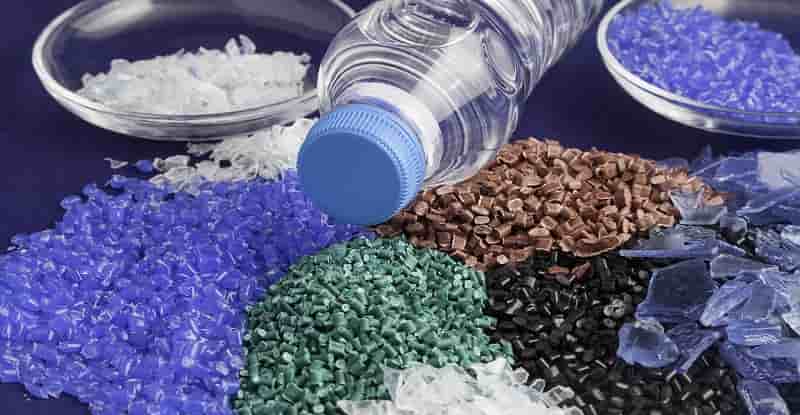
-The Alliance to End Plastic Waste Calls for Submissions for Recycling Technologies
The Alliance to End Plastic Waste (the Alliance), an international non-profit organisation, has launched a request for proposals (RFP) calling for projects related to Chemical Recycling Technologies and Business Models.
The Alliance’s goal is to minimise the volume of plastic waste disposed to landfill or incineration and to maximise the value recovered from recycled plastics in order to contribute to the cost of collection and investment in waste management infrastructure. One of a number of contributions to achieve this is through Advanced Recycling. Plastic GeneralNews Oil Polyolefins
This refers to new emerging technologies that enable capturing the value of post-use plastics – recycling used plastic back to high value products. It includes recent advancements in the available technology for sorting waste, and for recycling through mechanical or chemical transformation processes.
The Alliance to End Plastic Waste will build on all these new technologies, starting with a focus on emerging technologies for chemical recycling.

-INEOS Styrolution develops energy saving styrenics-based polymer for SLS 3D printing
INEOS Styrolutionis working to develop energy saving styrenics-based materials for powder bed fusion 3D printing technology. Plastic GeneralNews Oil Polyolefins
Funded by the German Ministry for Economic Affairs, the styrenics supplier worked on its PolySLS project between August 2017 and November 2020 to develop and test a styrene-based polymer compound for Selective Laser Sintering (SLS).
The resulting material is said to enable a 67% energy saving throughout the entire life cycle of the polymer compound when compared to the ‘energy intense’ PA12. A direct energy saving of 25% can be attributed to the printing of the styrene-based polymer because of the lower process temperatures required. Lowering the build chamber temperature to between 140-145°C, energy can be saved in the heating of the build environment, while also shortening the overall cycle because less time is needed to heat up and cool down the machine.
INEOS believes the material, which also exhibits ‘very little curling and warpage’, would be suitable for prototyping applications, but has not yet decided on whether or how it will proceed in terms of commercialisation. The company is, however, encouraged by the findings of the PolySLS project, both in the capabilities of the material, which it could see being applied in product design processes, and its sustainability, in which the company thinks there’s room for improvement for 3D printing technology.

-Sumitomo to build a PP compounds plant in Poland
Japan’s Sumitomo Chemical will set up a subsidiary Sumika Polymer Compounds Poland (SPCP) to build and operate a new polypropylene (PP) compounding plant in Poznan, Poland, the company said in a statement.Plastic GeneralNews Oil Polyolefins
It is planned that the new enterprise will produce about 30 thousand tons of PP compounds per year. PP compounds are materials obtained by mixing PP with synthetic rubber, fiberglass or inorganic fillers to improve its functionality, stiffness and other properties, for use in automotive bumpers, interiors and household appliances.
“With the widespread adoption of electric vehicles driven by stricter environmental regulations, demand for PP compounds is expected to be strong,” the company said in a statement.
It was previously noted that Sumitomo Chemical began construction of a new PP compounding plant in Jiangsu province in September last year , its fifth facility in China. This plant, owned by Zhuhai Sumika Polymer Compounds Co, will be launched in early 2021. Sumitomo Chemical will own 55% of the plant and Toyo Ink Manufacturing 45%.
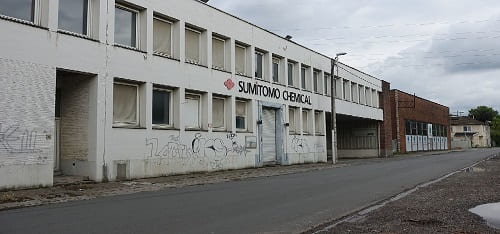
-Eco-Spindles launches recycled polyester yarn facility
Pioneering Sri Lankan plastic bottle recycler and manufacturer of polyester yarn and monofilaments, Eco-Spindles (Pvt.) Ltd commenced Phase 2 of its expansion to add 20,000 sq. ft of production space at its state-of-the-art facility in Horana. When completed, the expanded facility will double polyester yarn production capacity at Eco-Spindles. Plastic GeneralNews Oil Polyolefins
“All over the world, people are waking up to the urgent need to create and enter a circular economy. The expansion of our Horana facility is another vital step in this direction,” BPPL Holdings Managing Director and CEO, Dr. Anush Amarasinghe said. Eco-Spindles is a value-added exporter of polyethylene terephthalate (PET) waste bottles in Sri Lanka, and is on a mission to reverse the island’s environmental degradation by converting PET bottle waste, that would otherwise end up polluting sensitive eco-systems, into export quality products that have since captured extensive market share across the globe.
“As the only other entity in the world that is capable of directly manufacturing polyester yarn out of recycled PET flakes, we are extremely well-positioned to capture the rapidly increasing demand for such products. In this manner we are able to generate vital foreign exchange for the national economy, while at the same time, helping to reverse one of the most serious environmental threats of our time using a raw material that we had all considered to have only one use.

-Plastic trash can now be recycled into ultra-strong graphene
Plastic decomposition is sped up by the flash Joule heating method
Packaging from the grocery store, lint from our clothing, plastic shopping bags – plastics and microplastics are everywhere, and they’re not going anywhere. In fact, it will take them hundreds of years to decompose in landfills . In order to speed up this decomposition process, scientists from Rice University are transforming these discarded plastics into non-toxic, naturally occurring materials. They’re doing this by using a newly developed technique called “flash Joule heating,” to rapidly heat plastic materials to very high temperatures . Plastic GeneralNews Oil Polyolefins
Currently, there are a few plastic recycling techniques that are widely used, with differing results. For example, plastic bags are a huge contributor to the plastic waste stream – Waste Management, a trash collection company, estimates that over one billion plastic bags are used each year in the US alone. Even more shockingly, each plastic bag is used for, on average, less than one hour. Currently, the most common way to recycle plastic bags is by compressing them into composite lumber or small pellets, which can be used for building materials . While this is an excellent way to reuse single-use plastic, this plastic still is not biodegradable.
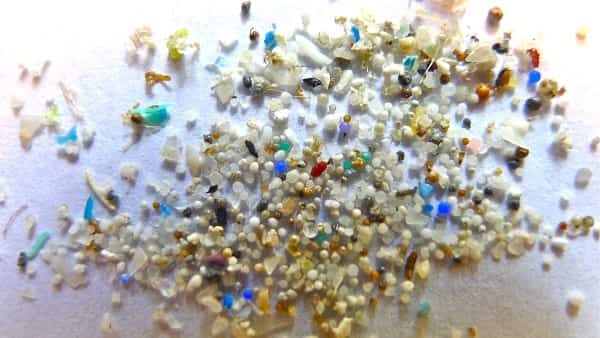
-Dow adds bio-based option to elastomers range
Dow Packaging and Specialty Plastics has added a bio-based option to its Affinity GA range of polyolefin elastomers. Plastic GeneralNews Oil Polyolefins
Affinity RE consists of three grades with 100 per cent bio-based content on a mass balance basis to optimise the carbon footprint of hot melt adhesives.
Henkel has confirmed that it will be used as part of its Technomelt Supra Eco hot melt adhesives range.
Affinity RE is made using bio-based feedstock such as tall oil – a by-product created by the paper-milling industry and sourced from sustainably managed forests. Its mass balance is certified by the International Sustainability and Carbon Certification.
Dow said Affinity RE offers an alternative to fossil fuel-based products and can help to reduce carbon footprint while delivering the same well-known performance as the entire Affinity GA range.
Consumers expect more sustainability from the products they use, and packaging is no exception, explained Imran Munshi, Dow Packaging and Specialty Plastics consumer marketing manager for Europe, the Middle East and Africa.
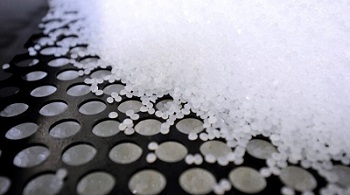
-CCL closes the loop on stretch sleeves
CCL Label is planning to offer a closed loop recycling solution for stretch sleeves, which are often used for returnable PET bottles in, for example, the German mineral water market. Plastic GeneralNews Oil Polyolefins
The recycling facility will be located at CCL’s Voelkermarkt site in Austria, which is a hub for the production of stretch and shrink sleeves mainly produced for the dairy, beverage and home care industries.
CCL Label is pioneering a new technology that enables the post-consumer deinking of the printed sleeves. The sleeves are removed from the PET bottle after it has been returned to the bottler. The sleeves are then shipped to the CCL Voelkermarkt site, where – after the deinking and cleaning – they are molten and shaped into pellets, which feed back into the manufacturing process, thus creating a new sleeve in a closed loop.
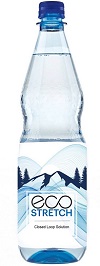
-MEGlobal increases March contract price of MEG in Asia by USD50 per ton
MEGlobal, the world leader in the production of monoethylene glycol (MEG) and diethylene glycol (DG), nominated the March contract price of MEG for Asia at USD790 per tonne on February 10, which is USD50 per tonne higher than the February level, the press reported. – company service.
The price was quoted on terms of delivery CFR Asia.
Earlier it was noted that MEGlobal raised the February contract price of MEG for Asia by USD70 per tonne versus the level of the previous month – to USD740 per tonne, CFR Asia. Plastic GeneralNews Oil Polyolefins
According to market sources, MEG supply in the Asian market is expected to remain limited in March due to the shutdown of two plants.companies Saudi Kayan and MEGlobal in the Middle East, which may support the price sentiment of market participants.
MEG, along with terephthalic acid (TPA), is one of the main raw materials for the production of polyethylene terephthalate (PET).
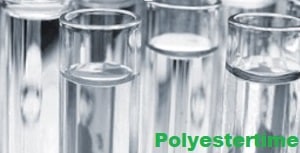
Plastic GeneralNews Oil Polyolefins
